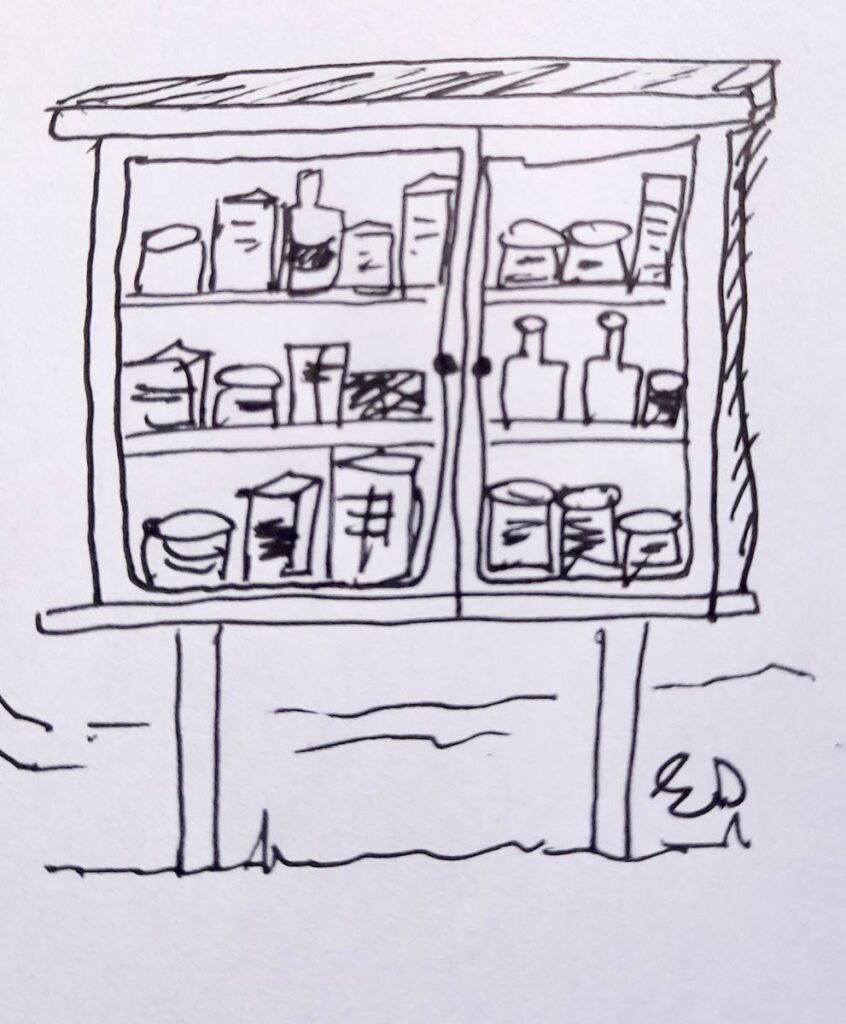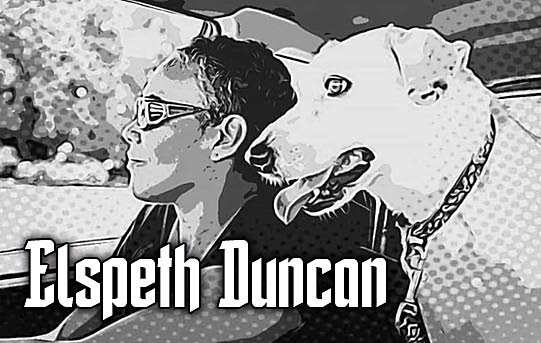Little free pantries

I had never heard about "little free pantries" until a few days ago when I came across mention of one on a US-based friend's Facebook page. In her post she said she was finding "a thousand ways" to make her new work location and longer commute fun.
One of those ways is to stop and put items in a little free pantry at the roadside.
The free pantry looks like a little wooden cupboard with shelves and a door with glass frontage, allowing one to see the items placed within. They are similar in appearance to the little "free libraries" in some communities abroad.
I asked my friend what kinds of items people generally place in the free pantry.
"Non-perishables, like canned food, boxes of pasta, dry beans," she responded. While most people generally respect the process, sometimes someone will take the entire week's worth of food.
The tagline for "the little free pantry movement" is "Take what you need; give if you can." The concept is described as "a grassroots, crowd-sourced solution to immediate and local need. Whether a need for food or a need to give, mini pantries help feed neighbours, nourishing neighbourhoods."
I love the idea. How would it work in TT?
My mind instantly ran back in time to many years ago when a friend of mine and her team embarked upon a popular plastic collection (for recycling) initiative in Trinidad. Seventy plastic collection bins were set up west of (and inclusive of) Laventille.

I recalled my friend telling me that while of course there were "diligently conscious" people who would place the correct items in the bins, they would also sometimes find the most horrible things amidst the plastic...rotting corpses of animals, bags of faeces, bottles of urine and other unpleasant and odious items.
Contrary to what most people would think, the bins that contained putrid items were located in what society generally considers to be "elite" communities... eg Westmoorings, Blue Range, Diamond Vale, Fairways, Haleland Park (general Maraval), St Ann's.
According to my friend, in those areas, the bins would generally contain an average of only 60-70 per cent of what they were supposed to contain (cleaned, used plastic bottles and containers for recycling).
On the contrary, bins that were consistently clean and contained about 95 per cent of intended plastics were located in East Port-of-Spain – areas generally stereotyped as "rough" and "poor" – Laventille, Morvant, Sea Lots, Belmont. The five per cent of items that were not supposed to be in their plastic bins were along the lines of packaging that was not recyclable through the programme (eg Tetrapaks).
Eleven of the 70 bins were in East Port of Spain. Of those 11 bins my friend remarked that they would be "immaculate" compared to the others, and that community leaders and members seemed pleased about their bins, respected the process and were grateful for the initiative. The bins were seen as a point of pride.
Would the little free pantry concept have a similar reception? Would some people leave unpleasant items amidst the non-perishable food offerings? Used baby diapers or dirty underwear? Greasy, empty fast-food boxes? Or would they respect the pantries as a source of nourishment for those less fortunate?
Such an initiative must involve a level of trust – trust that people will be kind, do the right thing, have respect for the needs of others and be inclined to give, not just take. Ultimately, this applies to life, not just to pantries and bins.
Imagine if someone were to put money in the little food pantry with a note attached saying: "This is for you to buy something you need which may not be in the pantry." Could people be trusted to leave that money behind for someone truly in need? A young single mother needing diapers for her newborn. An underprivileged teen girl needing sanitary pads or tampons. An unemployed man needing medication for his ailing family member. A homeless wanderer needing a new pair of slippers. A boy needing a tin of sardines for the starving kitten he found.
I feel inspired to establish a little free pantry in my community. I can think of the perfect location for it and the ideal "community partners" to help set it up. In addition to potentially helping various people/animals in need, I feel it will encourage a sense of community spirit and pride and will be an interesting social experiment...not to mention a topic for a follow-up article.


Comments
"Little free pantries"